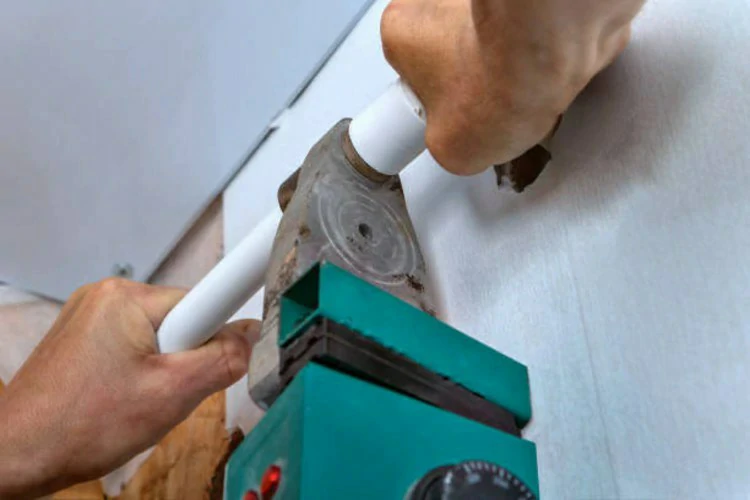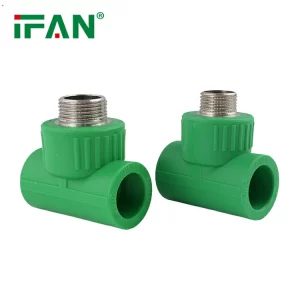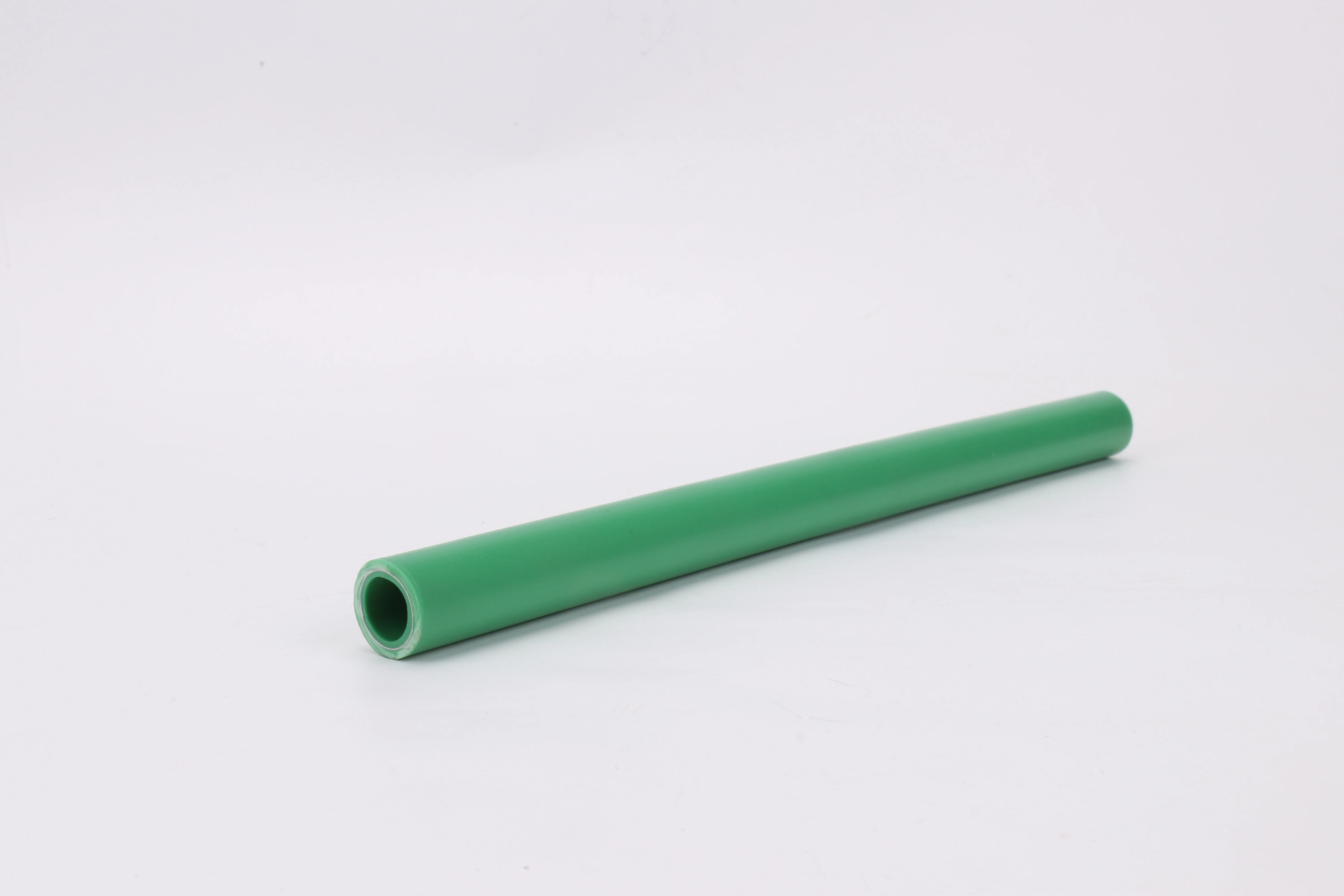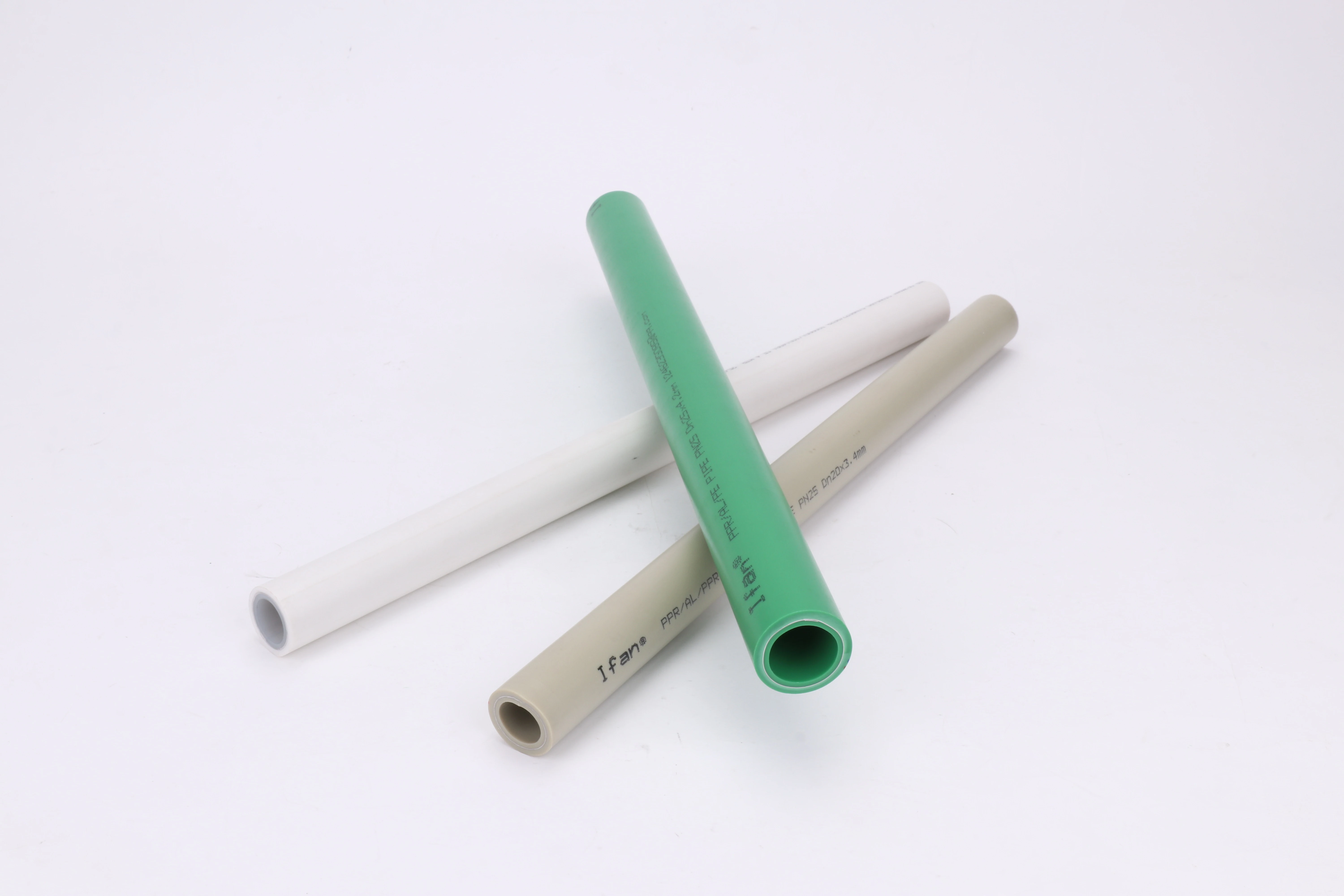Polypropylene Random Copolymer (PPR) tubes have gained significant popularity in various fluid conveyance applications due to their unique properties and advantages. In this article, we will compare PPR tubes with other commonly used pipe materials such as PVC and PE, highlighting their differences and benefits.
Material Composition and Structure
PPR Tubes
PPR tubes are made from high-quality polypropylene random copolymer, a thermoplastic material known for its excellent chemical resistance, durability, and thermal stability. These tubes are manufactured using a heat fusion welding technique, resulting in seamless joints and a homogeneous structure that ensures leak-free performance.
PVC Pipes
PVC (Polyvinyl Chloride) pipes are another popular choice for fluid transport applications. They are made from rigid PVC material and are commonly used for drainage, irrigation, and low-pressure plumbing systems. PVC pipes are lightweight, easy to install, and cost-effective, but they may become brittle over time and are not suitable for high-temperature applications.
PE Pipes
PE (Polyethylene) pipes are known for their flexibility, toughness, and resistance to chemical corrosion. They are widely used for water supply, gas distribution, and sewage systems. PE pipes can withstand high-pressure environments and are resistant to cracking and abrasion. However, they may be susceptible to oxidative degradation and require UV stabilization for outdoor applications.
Performance Characteristics
Chemical Resistance
PPR tubes exhibit excellent resistance to a wide range of chemicals, acids, and alkalis, making them suitable for conveying aggressive fluids without the risk of corrosion or degradation. PVC pipes also offer good chemical resistance but may be prone to chemical attack in certain aggressive environments. PE pipes are resistant to most chemicals but may degrade when exposed to strong oxidizing agents.
Thermal Stability
PPR tubes have superior thermal stability compared to PVC and PE pipes. They can withstand high temperatures up to 95°C, making them suitable for hot water distribution systems and industrial applications. PVC pipes have a maximum temperature rating of around 60°C, while PE pipes have a lower temperature limit of approximately 40°C, limiting their use in high-temperature applications.
Mechanical Strength
PPR tubes possess excellent mechanical strength, impact resistance, and dimensional stability, ensuring long-term durability and reliability. PVC pipes are rigid but may become brittle over time, especially in cold weather conditions. PE pipes are flexible and have good impact strength but may deform under heavy loads or when subjected to ground movement.
Environmental Considerations
Recyclability
PPR tubes are fully recyclable and environmentally friendly, contributing to sustainable development practices. PVC pipes are also recyclable but may release harmful chemicals when incinerated. PE pipes are recyclable but require proper disposal methods to prevent environmental pollution.
Longevity
PPR tubes have a longer service life compared to PVC and PE pipes. Their resistance to corrosion, chemical degradation, and thermal expansion ensures reliable performance and minimal maintenance requirements over time. PVC pipes may degrade over time due to exposure to UV radiation and harsh environmental conditions. PE pipes may experience oxidative degradation and stress cracking over time, reducing their lifespan.
While each pipe material has its advantages and limitations, PPR tubes stand out for their exceptional chemical resistance, thermal stability, and durability. Whether in residential plumbing, industrial processing, or commercial applications, PPR tubes offer a reliable and cost-effective solution for fluid conveyance needs.
IFAN is a Chinese manufacturer of plastic pipes, fittings and valves with 30 years of experience. If you are interested in IFAN copper fittings, copper valves, plastic pipes and fittings, please contact us. IFAN offers you a variety of standard pipes to meet your specific needs. Click below to learn more about IFAN’s wide range of affordable and cost-effective valve products and piping system related products.
We will reply your email or fax within 24 hours.
You can call us at any time if there is any question on our production.
For more information,pls visit our webside https://ifanpro.com/
Pls Mailto: [email protected]
Whatsapp: + 86 19857948982














Recent Comments